105 – Where have All The Kennel Clubs Gone

Where Have All the Kennel Clubs Gone…
As Eugene Kennel Club disbands after their final 2017 show, we ask… how many more kennel clubs will go away…
Have we lost the purpose of kennel clubs?
Are kennel clubs just for “putting on shows”?
Should kennel clubs be or regain their position as a local service and educational organization?
Listener Sheri Graner Ray recently made the following observation.
Where are our clubs today? They are the front line for talking to the public! Yet how many puppy matches have you seen outside of a show site in the past five years? We used to hold matches twice a year (sometimes more, if we had a bunch of puppies coming up) and held them in public parks and such where the general public could come and watch. (and maybe try entering their family pet.) This made a great opportunity to talk to people and educate them about purebreds.
When Kennel Clubs Were Public Education
We used to hold public education events (the “Bark in the Park”) and usually paired with a fun run of some sort. Heck, one year we even held it in a big shopping mall, essentially a “meet the breed” for a different breed every two hours. Great opportunity to talk to the public about dogs.
Today our club membership is dwindling and the members there are aging. They get together to put their shows together and that’s about it. And yet today with the continuing threat of the animal rights making owning a purebred “unethical”.. we need our clubs more than ever! Let’s get back to being kennel clubs for the public!!!!!!
AKC is You!
It bugs me when people cry “Oh the AKC isn’t doing anything”… I got news for you.. the AKC is a club made up of clubs.. not people.. WE have to do it!”
Many all breed kennel clubs do, in fact, offer outreach programs to the community. “Reading with Rover” programs, CGC and Puppy STAR testing opportunities, obedience classes, Responsible Dog Ownership days and Meet the Breeds are amongst the various services offered even in the small local club to which I belong.
But the struggle to do more with fewer, older bodies is real. So, here are some action items for you and/or your club to help make a difference in your community.
How To Keep a Kennel Club Going
Actively recruit new and young members.
- Develop a relationship with the local 4-H dog club if one exists. Create one if it doesn’t. 4-H is a tremendous incubator for purebred dogs and the AKC. Children learn from AKC provided materials, participate in local country fairs and have the chance to interact with purebred dogs through dog breed ID if nothing else.
- Offer free membership to junior members and give them age-appropriate responsibility within the club. They could be tasked with creating a fund-raiser for the scholarship program. Low-cost nail trims or dog baths at a locally owned pet supplies store is just one possibility.
- If your club doesn’t have a scholarship program, start one. The most excitement you see from the junior showmanship crowd is when there is scholarship money on offer as a prize for the weekend. Advertise heavily that junior club members are eligible for special education scholarships available only to them.
- Create a relationship with area schools whether it is a Reading to Rover type program, the AKC’s Canine Ambassador program that sends club members and dogs to schools to teach children about animal welfare and animal safety or major school assembly for RDO day. Kids love dogs. The only thing they like better is an excuse to get out of class for an hour! Purebred dogs and the history they represent are tailor-made for this sort of project. My college internship was exactly the description of the Canine Ambassador program. My traveling companion for the schools was a Clumber Spaniel. The kids LOVED hearing that the breed was named for Clumber Park in Sherwood Forest in England … Where Robin Hood lived!
- Guaranteed, there are purebred dog owners in your community who are not members of the club. Why not? Seek these people out and invite them to join! Make a point of encouraging all members to participate in club meetings by making these informal, brief and more about a social aspect. Host fun days, fun matches, barbecues or pool parties. Build a *community* of dog lovers. Be sure that the foundation of the group is the mutual love for dogs. People do not bond over Roberts Rules of Order. They join forces because their dogs are friends! There is work that has to be done, without doubt. Aside from major decisions of the group, delegate the work to smaller committees who offer short, concise written reports that are included in the minutes.
Find and Join a Kennel Club
If you already own a purebred dog or are thinking of acquiring one, search out the nearest all breed kennel club. I can assure you, club members will welcome you with open arms (or, in some cases like a starving person at the sight of a bread crumb.)
The process of joining a new group of any kind has some basic rules.
DO:
- Offer to help and follow through.
- Volunteer to bring food to whatever gathering might be in the offing. A common denominator in every. single. dog club? Free food wins hearts and minds.
- Save up your ideas until you get a feel for the structure of the group.
- If you have a plan or a suggestion or a bright idea, throw it out there ONLY if you are willing to organize and staff the project yourself. Making work for others is a non-starter.
- Bring a friend. Or two. The only thing better than food at a dog club is more people.
DON’T:
- Be a Debbie Downer. Insisting that a suggestion won’t work or will be a disaster will either set you up to fail if it succeeds or become a self-fulfilling prophecy if it doesn’t. Don’t be “that one” person. Don’t like the idea? Don’t participate. But don’t rain on other people’s parades.
- Expect to start at the top. Start with floor sweeping and coffee making. Ring stewarding and picking up poopie and crawling around on your knees marking off grooming spaces. Earn the respect you think you deserve.
- Think that joining the club is your ticket to a big ribbon at the dog show. This isn’t about you. It’s about serving the community. It’s one weekend a year that you pay forward for all of those other shows you attend.
- Complain that nobody listens to you. See number two above.
- Feed the personality conflicts. They happen any time you have more than two people in the same room. Make a point of not picking a “side” in whatever squabble might be ongoing.
Why Kennel Clubs are Not Just About Shows
Our all breed kennel clubs are the front lines in the ongoing battles being waged daily to ensure purebred dogs and our right to own them and breed them responsibly are preserved in to perpetuity. We can complain and fret and point fingers. Or we can get down in the trenches and join the fight. Those are legitimately the only two options. And option one isn’t going to get us very far.
Great Resources
If you want to learn more about different facets of putting on successful dog events and building strong clubs, you can follow up today’s episode by listening to:
Episode 32 with Seattle Kennel Club’s Katie Campbell
Episode 38 with the inimitable BettyAnne Stenmark of DelValle Kennel Club fame
Episode 47 with Kim Meredith Cavanna, hostess with the mostest of the always popular Woofstock.
Today’s Show with Laura Reeves
Our dog show community was rocked recently, with the announcement that the board of Eugene Kennel Club had voted to dissolve the club following its 2017 show in September.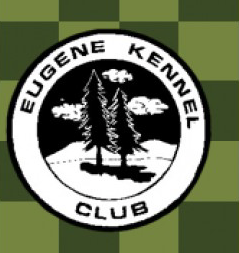
This was literally a visceral shock to our collective system, particularly for Pacific Northwest exhibitors. The club held its first “point” show in 1948. For **69** years, generations of fanciers have attended these shows. When my family started showing dogs in the early ‘80s, Eugene Kennel Club was part of the infamous CalOre circuit of shows that moved every day or two to a new location in a big circle from Northern California to Eastern Oregon and back down the I5 corridor, stopping in my home town, Roseburg, at the very end of the march.
The Beginning of Cluster Dog Shows
Just a side note, for newer exhibitors who complain about long, hard show weeks in major locations (think Florida in January or the Houston shows in July), keep in mind that back when dinosaurs roamed the earth, moving every day or two was the norm. Think set up and break down *every day* for a week or more instead of just once. The introduction of “cluster shows” and large events in one place was designed to actually make life easier for exhibitors.
Kennel Club Service to the Community?
While it certainly has done that, I do wonder if at some point we’ve lost the opportunity to serve local communities and for the public outreach that was created when the “dog show came to town.” But, that’s another topic for another day.
I’m not interested in dissecting the inner workings of a particular club. But I think *everyone* needs to hear this story. Because the fact is, this sad result is not particularly shocking in reality. The gut check here is that the average age of the membership in many, if not actually MOST, all breed kennel clubs is well north of 65. I’ll be 50 next year and I’m FAR and away the youngest active member of my all breed club. Chatting with other folks in other clubs brings the same conclusion across the board and across the country.
Kennel Clubs Puttin’ On The Show
Dog shows don’t just magically happen with a twitch of someone’s nose. Members of the hosting clubs work HARD, often all year long, to provide you and your friends and competitors with the *opportunity* to earn championship points, ranking points, big ribbons and bragging rights. These folks are without exception, volunteers. They handle exhibitor complaints, manage personality conflicts in their group, dedicate long hours at planning meetings, and at the show, for no better reason than to give back to the sport and their community. As this news proves, they don’t actually **have** to do that!
Eugene Kennel Club and Future of Kennel Clubs
When the Eugene Kennel Club news broke, I had a number of folks contact me looking for advice about joining a local club. How to go about it, what could they do being new to the sport, how hard was it, which club to join, like that. I also heard from club members around the country begging for more active members.
So, since this isn’t really match.com, I thought I’d put together a list of five tips for joining and succeeding in an all-breed club. AND five more for current club leadership about how to attract new members and *retain* and encourage more involvement from your existing membership. This is aimed at all-breed kennel clubs, but these are pretty common areas of conflict or concern in specialty clubs, performance clubs and pretty much anywhere two or more people join together to try and accomplish something worthwhile.
Joining an All Breed Club
WHY should I join? Because if you enjoy showing dogs. Because the only way that happens is if people do the work. And we’re running out of people to do the work! If you want to enjoy the benefits of other people’s labor, you need to pay it forward with some labor of your own. By the way, professional handler peeps, I’m talking to YOU too. If you can’t afford to miss one weekend a year you might need to rethink your business plan.
How to Join a Kennel Club
HOW do I go about it? Think about the dog shows near you. Think about the folks you’ve met at those shows. Is there even a kennel club in your town? Google it! Most of them have at minimum a social media or bare bones website. Find a handling class or an obedience class or the secretary’s name. Meet some of the members at the class or at the local dog show. Is there a club a bit further away that hosts a show you particularly like? Join them in building a great event. Any club I’ve ever encountered will invite guests. Go to the membership meeting and wait for it, *meet people*! Talk to folks, ask questions and offer up some of your enthusiasm or confusion! Offer to bring cookies to the next meeting. There will be an application process. It is generally relatively pro forma. I know there are clubs out there that are persnickety about who joins. Guess what. For each one of those, there are 20 clubs who are *desperate* for strong backs, committed faces and a chance to share the labor.
What Can I Do?
WHAT can *I* do? The All breed club isn’t just a dog show. And a dog show isn’t JUST a show chair or judges committee. All breed clubs need folks to help organize speakers and topics for meetings. They need secretaries and treasurers and board members. They need a legislative liaison, a community PR person, somebody to run Responsible Dog Owner days, parade participation and ANY chance to reach out to the public. They need somebody to unlock the building for handling or obedience class or whatever it is. They need somebody to organize and restock the club trailer and take it places. There are literally dozens of jobs small and large that are often handled by a group of about 6-8 people (if they’re lucky). Show up and ask what you can do to help. Serve on a committee to learn about a particular area and do the grunt work. Just like learning how to show dogs, you rarely get to start at the top of the ladder! Shows need folks to be in charge of flowers and grounds maintenance and catalog sales and announcing and ring stewards and judges hospitality and trophies and parking and grooming and… You get the idea.
Where is the best kennel club to join?
If you are blessed with a variety of local options, join more than one club! Or visit with club members from each and get a feel for the vibe of the club. Choose the group that most closely meets your personality. Some clubs are relaxed, some are formal, some are lots of fun and some are very intense. Pick what works best for you. Or, take pity and choose a club that is desperately short handed.
When I get there, what should I do?
Work! Don’t start the conversation with this is how we need to change the world. The more you put in your time, fulfill the commitments you make, make friends with the other members, the more liable you are to earn respect and the opportunity to do more. If you have an idea for a special project, offer it up along with how YOU personally will do the work. And then, DO THE WORK! There is nothing more frustrating than someone who bails at the last minute.
Club Membership Recruitment and Retention
WHO should we “let in”? If you want my opinion, pretty much anybody with a dog! I’ve said it before and I’ll say it again. Our future ability to own and show and breed dogs depends on our success right now on reaching JQ Public with an inclusive, welcoming, uplifting message about the truly great gifts of purebred dogs. Being secretive, jaded and hiding behind closed doors might or might not protect you from the attention of the AR extremists, but it certainly isn’t going to bring any more people into the world of purebred dog shows and events.
HOW do we encourage participation from new/inactive members? Give people a job and let them, for pete’s sake, DO it. Quit micromanaging everything. Obviously, provide support and resources, perhaps *gentle* guidance, but if someone is doing the job don’t nickel and dime them to death. One guaranteed way to lose active club members is to be unpleasant to someone who is *volunteering* to do a job!
WHEN is it time to “pass the torch”? The healthiest clubs I talked to share their positions regularly. And they continually “cross-train” their members on different positions, just like successful businesses do.
WHAT are the remedies or preventions for “burnout”? The above suggestions are a great place to start. Show appreciation to your most active members. Small gifts, tokens of gratitude, a simple standing ovation at a club meeting. Quit worrying that YOU aren’t getting the recognition and focus the attention on other people.
“WHY can’t we all just get along?” Wellll, on this one I wish I had better answers. Personality clashes, interpersonal competition, misunderstandings…. the list is as long as your arm. I’ve been a worker bee, a national club president and everything in between. There’s always “that one person”. There’s always “well, there was the time so and so did such and such to whomsoever”. The best solution I have ever found is direct, personal communication. In person is best, the telephone is next. Email, text and social media are almost guaranteed to create a disaster if they are your only or primary means of communication. Say I’m sorry. Say thank you. Ask for clarification of a statement before you take it in a negative way. It’s all pretty much basic level stuff. Why and how that so frequently gets lost in translation in dog clubs is simply beyond my ability to comprehend. We all have the same objective. My new favorite phrase is this… “Working together to push the elephant up the mountain.” It’s a great image and an even better goal.
If you want to learn more about different facets of putting on successful dog events and building strong clubs, you can follow up today’s episode by listening to episode 32 with Seattle Kennel Club’s Katie Campbell, episode 38 with the inimitable BettyAnne Stenmark of DelValle Kennel Club fame and episode 47 with Kim Meredith Cavanna hostess with the mostest of the always popular Woofstock. Links to these and more resources are in the show notes on the website.
Our Valued Corporate Sponsors:
Our Esteemed Advertisers:
Our In-Kind Supporters:
KNOWLEDGE IS POWER — FRANCIS BACON
When you become a patron of Pure Dog Talk you’ll tap into an exclusive community of experts to help you and your dog be blue-ribbon best at whatever you do with your purebred dog! Your support helps keep the MP3's rolling at Pure Dog Talk!
As a supporter, you’ll immediately gain access to the weekly Pure Pep Talk SMS, Pure Pep Talk private Facebook group, and priority emails. Patrons can choose to level up to the After Dark Zoom and a Patrons Digital Badge for their website— even a private counseling session with Laura on any topic.

DON'T MISS AN EPISODE!!


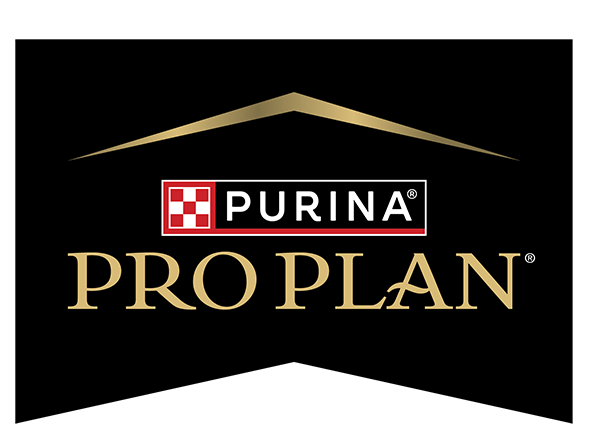


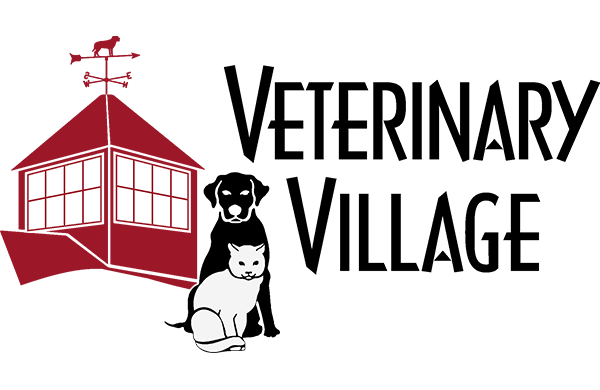

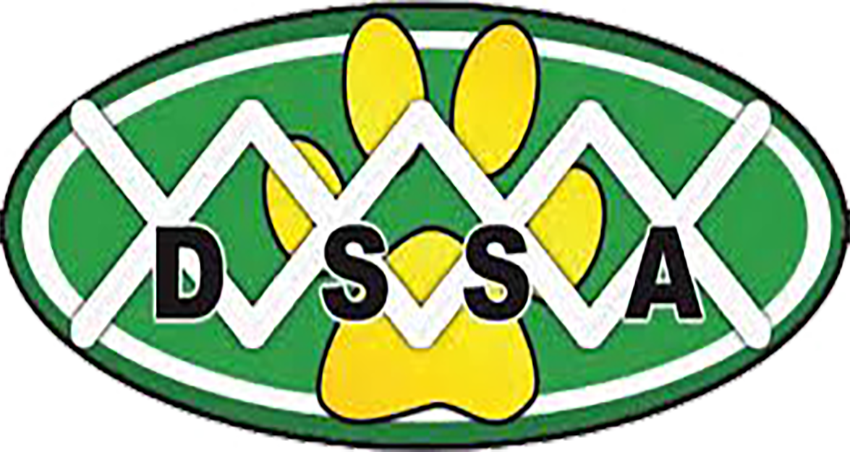

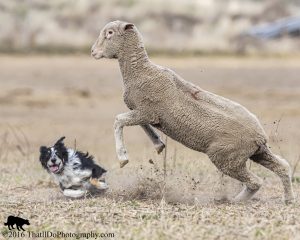



Hi Laura,
Thank you for your inspirational post. Having shown dogs for 47 years I have belonged to and been active in a myriad of clubs since I was a Junior.
The unfortunate dissolution of the Eugene Kennel Club comes only after several years of struggle to keep it going. Our situation may be unique as we are a group that get’s along well and is not broke.
I would like to thank the handful of dedicated members that, over the past years, stepped up, pulled together and worked hard to keep the club afloat.
The last thing that we can do to honor this club is to let her go with dignity and no drama.
We hope to see everyone at our show(s) on September 9th & 10th.
Debbie Berry
President Eugene Kennel Club